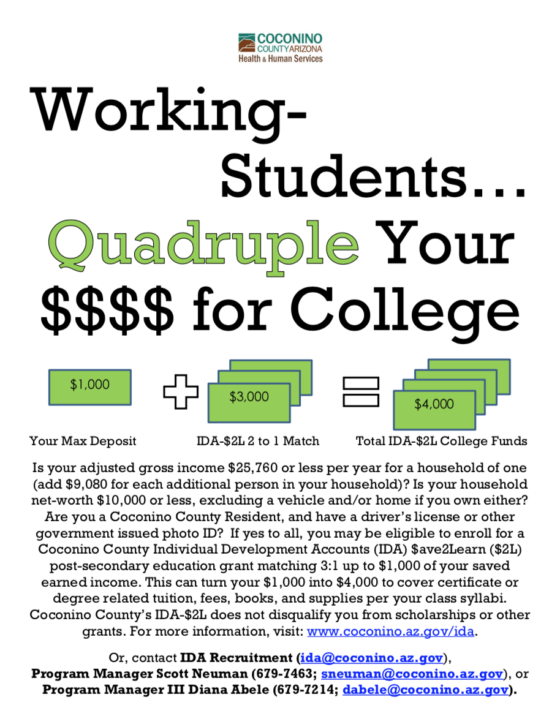
For more information, visit: www.coconino.az.gov/ida
Or, contact IDA Recruitment (ida@coconino.az.gov),
Program Manager Scott Neuman (679-7463; sneuman@coconino.az.gov), or Program Manager III Diana Abele (679-7214; dabele@coconino.az.gov).
Read more →